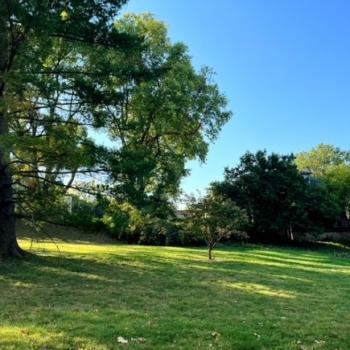Listen to the Canary in Your Coal Mines
Many years ago, before technology took over the world, miners used to take songbirds into the mines—primarily canaries. Although entertaining to the miners, their main job was to stay alive. Their purpose was to detect methane or carbon monoxide in the air. If the bird stopped singing, the miners would stop working and look at the bird. If the bird was sick or had died, the miners knew that they had a buildup of gasses in their area, and it was time to clear out. The canary was the precursor to the modern carbon monoxide sensor many of us have in our homes and workplaces.

A Little Story
Many years ago, a cousin of my dad’s studied to be a Catholic priest. He got to within a final semester before dropping out of the program. After, he dedicated the next 20 years to farming nonstop. He would farm in the US from spring through late summer; then, he’d board a plane and fly to Australia, where he would farm from autumn through the winter. By doing this, he hoped to retire early and enjoy the rest of his life.
In short, his plan worked. He retired at the ripe old age of 44. Soon after, he began to work on his passion: designing and building structures—houses, barns, garages, whatever—but all with an artistic twist. He would do a project and then take time off because, as he said, “My canary’s telling me to shift focus.”
Every other year, on New Year’s Eve, he would don a blindfold, spin three times, and throw a dart at a wall-sized world map. Wherever the dart hit, he would pack up his pint-sized motorcycle and travel the area for months at a time. He’d seen Russia, China, Europe, and much of South America simply because the dart told him to. When he’d “hear the canary call,” he’d pack his bike and come back home.
One year, he heard the canary’s call especially loud and went to the inner depths of Brazil. He took his bike as far as it could go, but something told him to go deeper. He ended up in a small, remote village where very few outsiders had ever been. My dad’s cousin was docile, inquisitive, and readily smiled. All of these helped win over the people, and they invited him to stay. Over time, the people began to trust him, and he would be invited to eat meals with one family and then stay with another for several weeks on end.
One evening, as the people of the village gathered to have a communal meal, they asked him which deity he prayed to. He began to tell them about God, Jesus, and the Holy Trinity. He would tell the stories he remembered from the Bible and how Jesus came to reunite people with God. The people would gather three nights a week to listen to the stories this outsider had brought to them—this farmer, this seminary dropout, this amateur architect, this vagabond, this listener to canaries. After being in the village for nine months, the native population wanted more. They wanted to be a part of this “people of God” the stranger had talked about.
The entire village helped in building a dedicated “church” in the center of a clearing. After, my dad’s cousin contacted the local diocese and explained all that had transpired. Unfortunately, the diocese didn’t take him seriously, so no one was sent. Eventually, he left the village and brought five men to seek an audience with the bishop. The bishop was apprehensive at first. Here is an American seminary dropout in the middle of the jungle, claiming to convert an entire village and build a church. Eventually, the bishop was persuaded to come and see.
When the bishop arrived, the people all came to the river and welcomed him like a king entering their village. They made their best meals, wore their best clothing, and sang their best songs in his honor. The bishop who had planned on only staying a few hours, ended up staying four days, talking to them and asking what they knew about God, and Jesus, and the Holy Trinity. At the end of the four days, there was a ceremony, turning the large building in the clearing into an actual church, and then the population of the village was all baptized and confirmed in the faith.
My dad’s cousin had been in the village for a little over a year and a half when he heard the canary sing again. He said it was a feeling of change laced with melancholy. With sadness, he told the village that his time with them was at an end, and he needed to go back home. He didn’t know why, but something was telling him it was time. As he left, the village came to the water’s edge and sang to him as he rounded the far curve of the river. All he could think about traveling back home was the joy and blessing he felt in that little village.
When he got home, he was met with the news that his father had passed away, and the funeral was to be the following week. He finally knew why the canary was singing so loudly in his ear.
Jesus seemed to have His own canaries in the coal mine. In John 12: 20-23, we read:
Now there were some Greeks among those who had come up to worship at the feast. They came to Philip, who was from Bethsaida in Galilee, and asked him, “Sir, we would like to see Jesus.” Philip went and told Andrew; then Andrew and Philip went and told Jesus. Jesus answered them, “The hour has come for the Son of Man to be glorified.”
What a shift! Just before the Greeks came to see Jesus, he had just entered the gates of Jerusalem like a king sitting on a donkey. The people were praising him, and all was great with the world. So why did a couple of converted Greeks signal to Jesus that His time had come?
The short answer is we will never know. There are all types of speculation, but it’s just that—speculation. The fact is, as soon as Jesus heard they were coming to see him, he delivered the last public message of His ministry in John, the story of the mustard seed.
God sends us canaries all the time, trying to communicate with us every day. The question is, do we listen? Do we hear the canary, the Holy Spirit, the Guardian Angels—or do we go about our day with our heads and hearts buried in our work? The miners listened to the canary’s song and knew when it stopped, it was time to leave. My dad’s cousin listened to his canary, and he had adventures of many lifetimes. By seeing the Greek converts, Jesus knew His canary was singing loudly in His ear and that the time for His being here was at hand.
The Canary’s Song
What’s your canary singing? Are you listening? Will you do what it asks of you? Your personal canary might be your conscience, your Guardian Angel, or the Holy Spirit trying to sing in your ear. Your “mine” might be your workplace, your home life, or your chosen friends. Your Greeks might be your teachers, your pastor, or your neighbor, all getting your attention by simply being there. Their simple presence may make your Guardian angel whisper in your ear, “Time to make a change.” So, the big feathery question is, will you listen?














